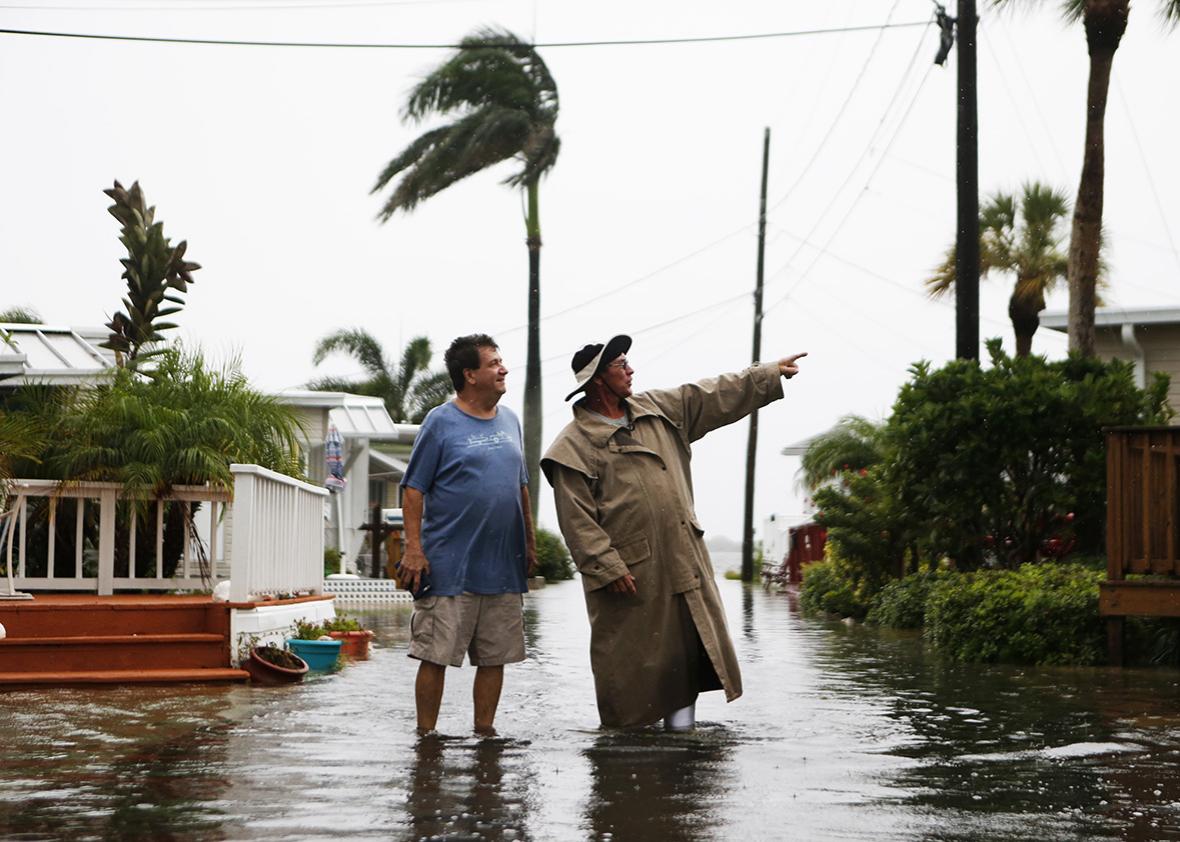“It wasn’t discussed,” environmentalists lament.
It’s true. The 2016 presidential election has largely ignored climate change. During the three debates, the candidates spent 5 minutes and 27 seconds (about 2 percent of the time) on the topic. This was better than the 2012 debates, when zero minutes were devoted to climate change. It was about even with the 2008 debate (5 minutes and 18 seconds), the 2004 debates (5 minutes and 14 seconds), and worse than 2000 (14 minutes and 3 seconds).
Climate change did come up during the Democratic primary. Bernie Sanders and Martin O’Malley were vocal about it. Hillary Clinton was even forced to take a stand against the Keystone pipeline. After tacitly supporting it during her stint as the secretary of State, she famously declared that “I never took a position on Keystone until I took a position on Keystone.” Small mercies!
The Republican primary saw everyone in the field opposing climate change mitigation policies. Some openly questioned climate science while others focused their attacks on it being a job killer.
You’d think that the extremely different viewpoints expressed by the two sides would make this a ripe topic for presidential debates. And yet, it was largely ignored, again, much to environmentalists’ chagrin. But might this actually benefit their cause?
To figure this out, we need an answer to the following: What would make arriving at a bipartisan compromise possible once the elections are over?
Some might say that this compromise is already in motion. After all, prominent Republicans (such as Henry Paulson and George Shultz) have acknowledged the reality of climate change and have come out in favor of mitigation. Yet, the 2015 Gibson resolution on addressing climate change mustered support from only 15 of the 248 House Republicans. A recent Pew poll suggests a continued partisan divide among voters: As opposed to 79 percent of Democrats, only 38 percent of Republicans agree that there is scientific evidence that Earth is warming.
Of course, the continued mistaken belief that there is no climate change feels like even more of a reason why it should be discussed. Perhaps environmentalists hope that such a conversation would convince some deniers of the reality (though that’s largely wishful thinking).
Either way, environmental groups may feel justified in complaining about the neglect. They might even argue that outrageous statements by Trump on climate change could galvanize support for action and mitigation. What can be better for publicity than getting into an onstage (or 3 a.m. Twitter) spat with Trump?
Unfortunately, this might also galvanize opposition against mitigation.
Suppose one fast forwards to the Clinton presidency. It’s possible that the way the issue would have been framed during the debates could have limited her policy options. The danger is that framing might outlast the presidential campaign. Call it the “Trump effect”—the ability of a demagogue to distort the issue and force a conversation along highly polarized lines and even lies.
Trump could have framed climate change as a global conspiracy and taking action on it as pandering to China. This is not far from reality: In June 2012 (well before this election cycle), Donald Trump famously tweeted that “the concept of global warming was created by and for the Chinese in order to make U.S. manufacturing non-competitive.” His campaign hasn’t deleted the Tweet; so we suppose he stands by his claim.
As ridiculous as it sounds, these can become difficult labels to shrug off. Post-election, Trump supporters might continue with this mindset of “climate change mitigation equals China pandering.” This framing will probably make it more difficult for some Republicans to arrive at a rational compromise with the Democrats on climate change. Remember, Trump will probably draw between 40-45 percent of the total vote. This is a large constituency to ignore. Climate change could even become a new litmus test for Republicans to demonstrate their opposition to Clinton’s “China pandering” agenda. Harry Truman had to deal with the “who lost China” accusation. Hillary Clinton might have to battle “who lost to China.”
It is understandably frustrating that the potential leaders of our country did not have a productive conversation about one of the greatest threats currently facing humanity. But given the reality of how that conversation likely would have gone, perhaps it is actually preferable that it did not happen. Its absence may make action on climate change a more politically viable and less partisan endeavor in the future. The less attention it gets now, the easier it becomes for Clinton to construct policy compromises that can push the climate change agenda forward.
Getting ignored is bliss, especially when Trump is around.
